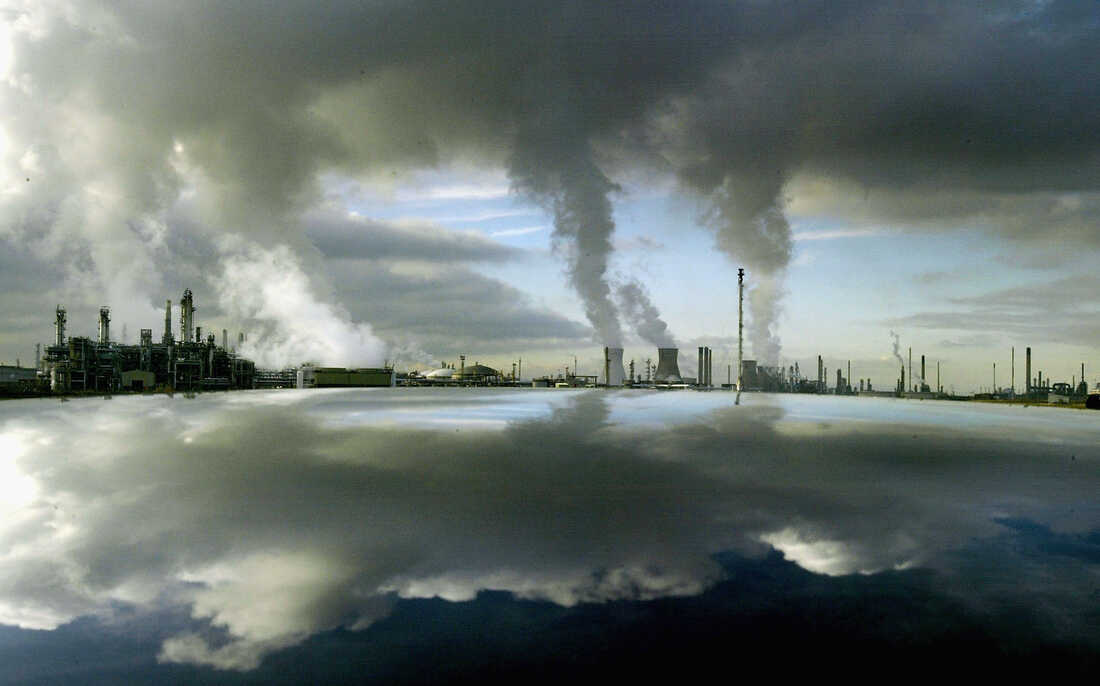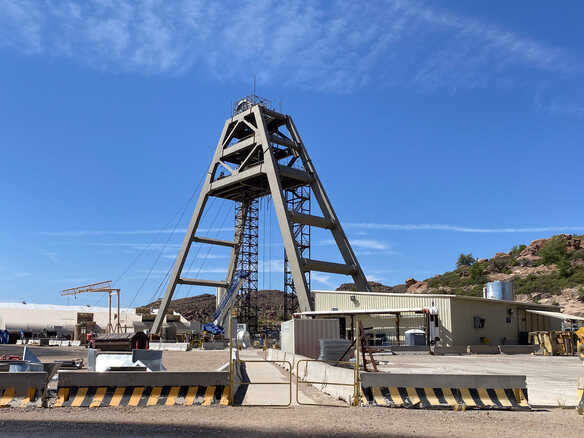The world is still falling short on limiting climate change, according to U.N. report
By Lauren Sommer
Emissions from burning fossil fuels aren't falling fast enough to stop dangerous levels of warming, a U.N. report warns. Christopher Furlong/Getty Images hide caption
toggle caption Christopher Furlong/Getty ImagesEmissions from burning fossil fuels aren't falling fast enough to stop dangerous levels of warming, a U.N. report warns.
Christopher Furlong/Getty ImagesThe world needs to "rapidly accelerate action" on cutting heat-trapping emissions, warns from the United Nations Framework Convention on Climate Change. Countries have an ever-shrinking window of time to stave off temperatures that would bring more dangerous heat waves, droughts and storms.
The warning comes ahead of major climate change negotiations among world leaders in early December at COP28, to be held in the United Arab Emirates. Countries use the annual summit to discuss their pledges to cut greenhouse gas emissions, but so far, .
Climate scientists warn that the world needs to limit warming to 1.5 degrees Celsius (2.7 degrees Fahrenheit). , sea level rise threatens to inundate coastal cities, coral reefs could disappear almost entirely, and extreme weather events become even more common. Currently, the world is on track for of warming.
"This report is a wake-up call to the injustice of the climate crisis and a pivotal opportunity to correct course," Ani Dasgupta, president of the nonprofit World Resources Institute, said in a statement. "We already know the world is failing to meet its climate goals, but leaders now have a concrete blueprint underpinned by a mountain of evidence for how to get the job done."
The world is doing better now than the outlook in 2015, when the Paris Agreement was signed to cut emissions. Back then, the world was on track for 3 degrees Celsius of warming. While emissions in some countries seem to have peaked, globally they're still rising. In 2022, greenhouse gases hit the , 50 percent higher than before the industrial revolution.
The report notes that renewable energy has been growing rapidly, with the cost of solar and wind power decreasing and countries scaling up their ambitions. Renewables will be key, it says, potentially providing three-quarters of the emissions reductions needed to hit net-zero. But emissions from burning coal aren't falling fast enough. According to a , coal emissions need to drop by 67–82 percent by the end of the decade.
they're experiencing from more intense storms and floods.


